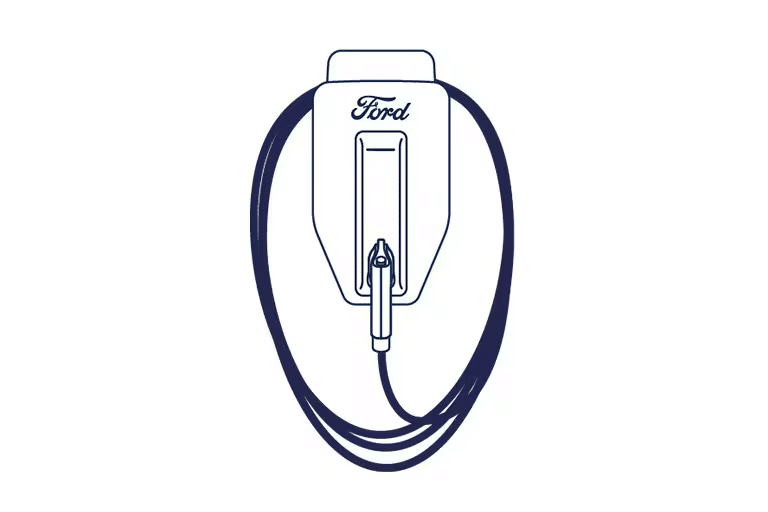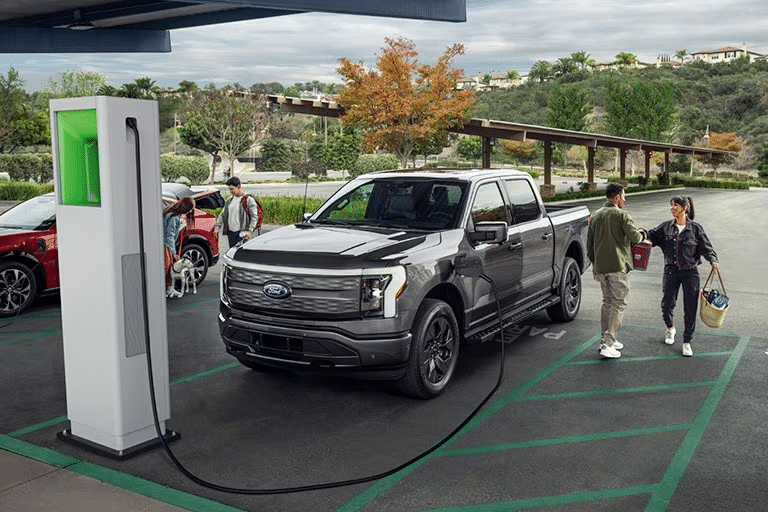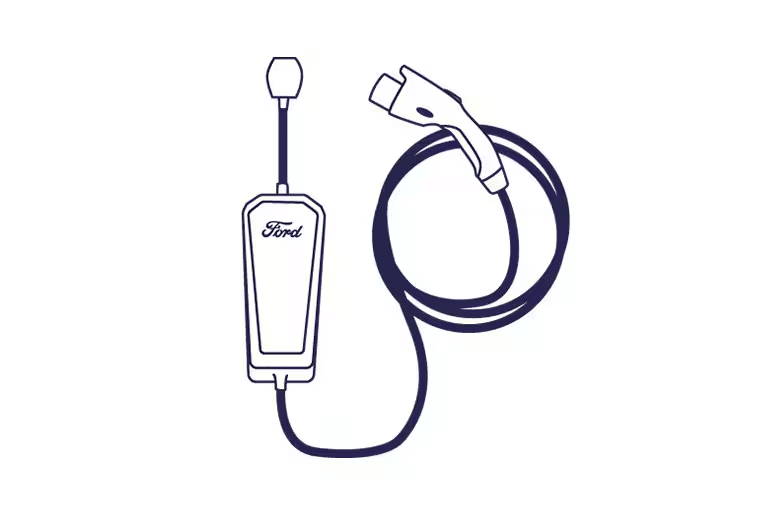
Mobile Power Cord
Compatible with all Ford EVs and plug-in hybrids, the available Ford Mobile Power Cord provides Level 1 and in some cases Level 2 charging capability at home and elsewhere.
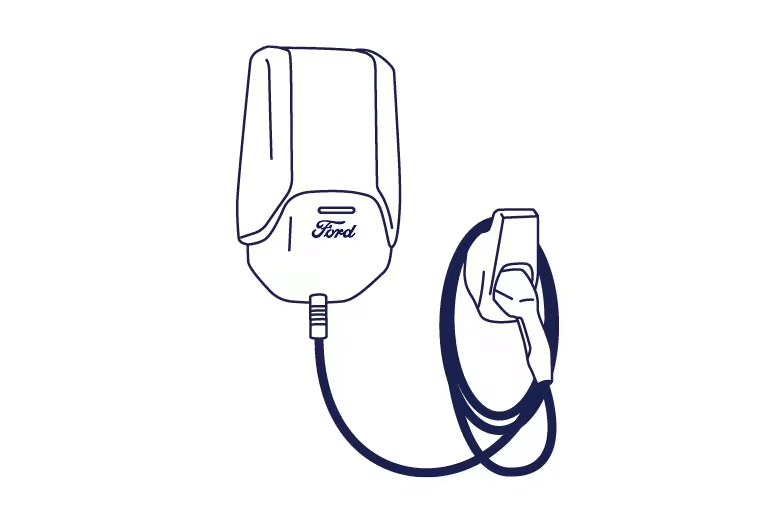
Connected Charge Station
The Ford Connected Charge Station can charge any current or future EV and PHEV in the Ford lineup. Bluetooth-enabled and Wi-Fi-capable, this wall charger provides an L2 charge at 240V.
Charging Levels to Fit Your Needs
Explore the different charging levels that offer convenience and flexibility no matter where you live or how you drive. Learn more.
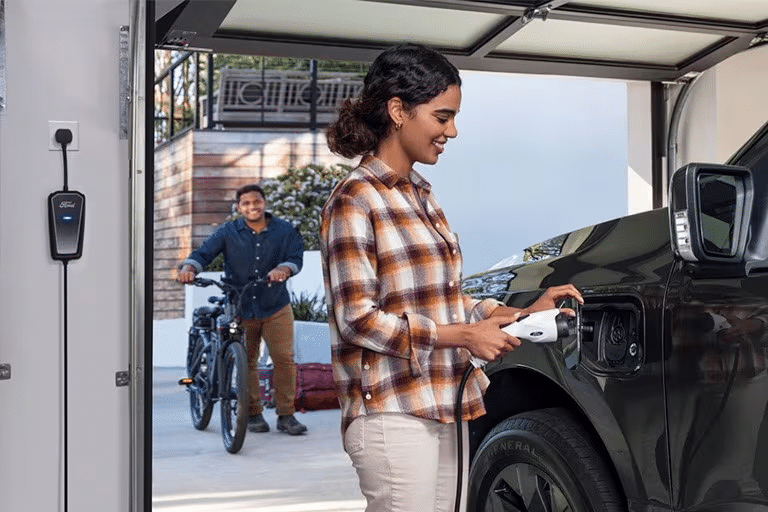
Mobile Power Cord
Compatible with all Ford EVs and plug-in hybrids, the available Ford Mobile Power Cord provides Level 1 and in some cases Level 2 charging capability at home and elsewhere.
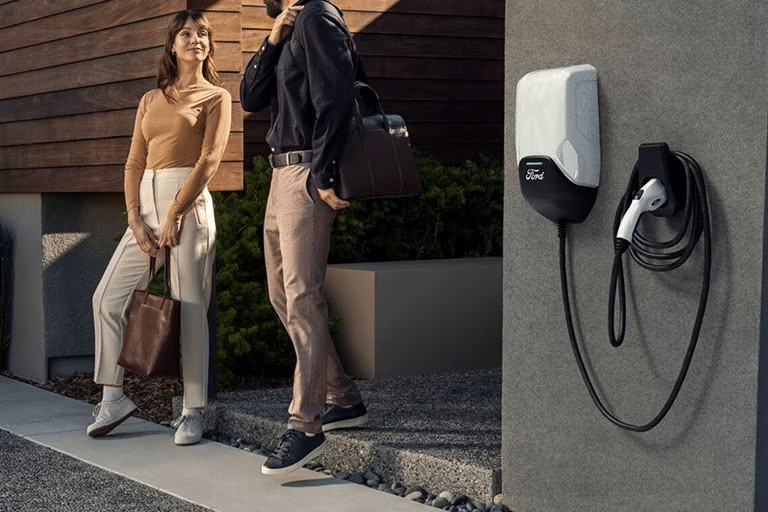
Connected Charge Station
The Ford Connected Charge Station can charge any current or future EV and PHEV in the Ford lineup. Bluetooth-enabled and Wi-Fi-capable, this wall charger provides an L2 charge at 240V.
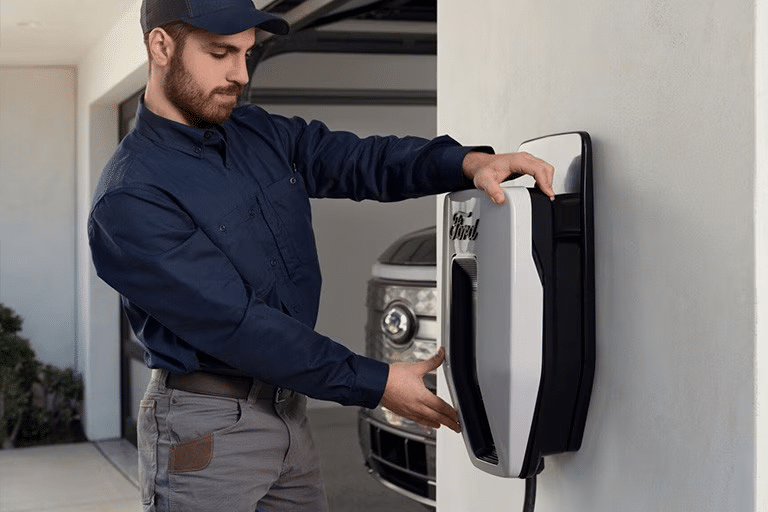
EV Charger Installation Requirements
Want a primer on what you need prior to installation? Learn about circuit breaker, voltage, wire configuration requirements and more to gain more insight before you speak to an electrician.
EV Charging Options for Condo and Apartment Residents
If you live in a condo or apartment building, the available 6-metre Mobile Power Cord can connect to any standard 120V outlet for charging in your indoor parking area, at workplaces, and elsewhere. Fast public charging is also a convenient EV charging option. Plan ahead and locate charging stations near you via SYNC in your vehicle or in the FordPass app to ensure your EV is ready to go when you are.

Get On Board with Daily Charging
Reduce range anxiety by making EV charging part of your daily routine. Check out these tips and see our FAQs for even more helpful info.
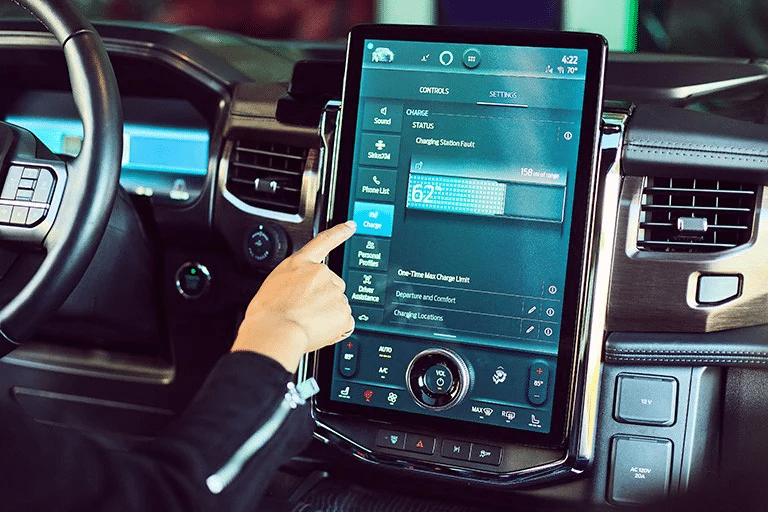
Setting a Charging Schedule
You can set a charging schedule using SYNC 4 in your vehicle, or via your smartphone with the FordPass app. This will allow you to monitor and manage your vehicle’s charging to create a schedule that works for you.
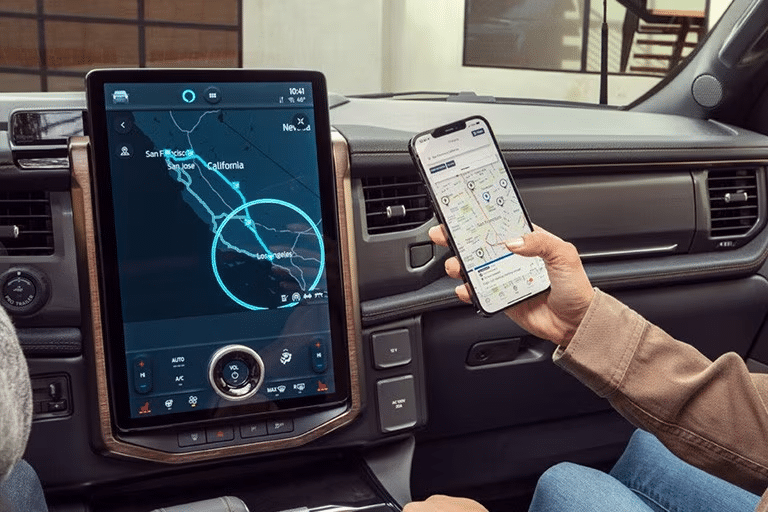
Daily Commute vs. Road Trip
Your EV’s charging needs will vary based on the length of your trip, and for your day-to-day journeys, an 80-90% charge is more than enough. Plan accordingly for every excursion – from your daily commute and running errands to road trips and extended adventures. Find EV chargers in-vehicle or in your FordPass app
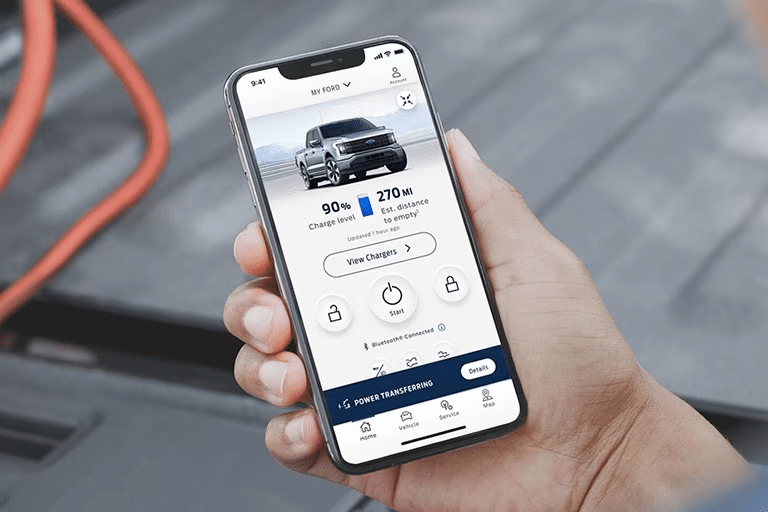
Manage Charging with the FordPass App
The FordPass app allows you to find charging stations, monitor charging, and manage settings right from your smartphone. You can also set a charging schedule that works for you.

Cold Weather vs. Battery and Range
EVs work harder in cold weather, and this can have impacts on range. Explore how you can optimize your vehicle’s range when temperatures drop.
Can I charge my EV from a regular wall outlet?
Yes. The Ford Mobile Power Cord can connect to any standard 120V outlet – just like the ones in your household.
Can I use a standard extension cord to charge my Ford EV?
It is not recommended to use an extension cord to charge your EV, however the Ford Mobile Power Cord and Ford Charge Station wall chargers all have a generous 6-metre (20-foot) cable.
Can I charge my Ford EV at a Tesla charging station?
You can charge your Ford EV at upgraded Tesla Superchargers. A fast-charging adapter (NACS) is required. Note that Tesla Destination Chargers require a different adapter, available for purchase from third-party sellers.
Can I use my Ford charging station for non-Ford EVs or my plug-in hybrid?
The Connected Charge Station uses an industry-standard type J1772 connector, so it can charge any EV or PHEV compatible with type J1772. The Charge Station Pro is compatible with all Ford EVs. The Ford Mobile Power Cord is compatible with all EVs and PHEVs in the market.
How long will it take to fully charge my EV?
Depending on whether you are using L1, L2, or L3 charging, you can sufficiently charge your EV overnight through a 120V outlet or get an up to 80% charge in as little as 20 minutes, usually found at a public DC fast charging station.
What percentage should I charge my EV to?
A charge of 80-90% is more than enough for the average daily commute. A full charge is recommended for longer excursions or road trips. To reduce range anxiety, plan ahead and choose a route with nearby charging stations. The more you drive your vehicle, the better you will get to know your specific charging needs.
Why don’t I need to be always 100% fully charged?
It is best to minimize instances of 100% or 0% charge as these extremes will stress and eventually degrade your EV battery. If you need to charge mid-journey, you can find nearby charging stations via the FordPass app99 or plan your trip in advance so you know exactly when and where you’ll need to charge.
How far will one charge take me?
Your EV’s distance to empty when fully charged depends on your model, battery, climate, and other factors. Your Owner’s Manual will provide more specific information on your vehicle’s range.
What should I do if I run out of charge while I’m on the road?
If your EV runs out of charge while you’re on the road, Roadside Assistance can take your vehicle to the closest public charger, your home, or even your preferred Ford Dealer nearest to the breakdown location.
How do I get the best range from my Ford EV?
Plan your trips to include nearby charging stations and make daily charging part of your routine – in much the same way as you would your smartphone – ideally starting your day with an 80-90% charge.
Are there available rebates, offers or government incentives for chargers?
Keep an eye out for federal and provincial rebates and incentives for applicable savings on your EV purchase.

